★★
“Sink or swim.”
 This is the story of Syrian sisters Yusra Mardini and her sister Sarah, played by real-life sisters Nathalie and Manal Issa. Growing up, they were trained by their father, a professional swimmer himself, and had the goal of reaching the Olympics for their country. The (still ongoing) Syrian Civil War led to the sisters leaving their homeland, and this is mostly the story of their journey, through Turkey, across the Mediterranean in a very flimsy dinghy to Greece, then across Europe to Germany. It’s a journey fraught with peril, on which predators looking to scam migrants (or worse), lurk at every turn. However…
This is the story of Syrian sisters Yusra Mardini and her sister Sarah, played by real-life sisters Nathalie and Manal Issa. Growing up, they were trained by their father, a professional swimmer himself, and had the goal of reaching the Olympics for their country. The (still ongoing) Syrian Civil War led to the sisters leaving their homeland, and this is mostly the story of their journey, through Turkey, across the Mediterranean in a very flimsy dinghy to Greece, then across Europe to Germany. It’s a journey fraught with peril, on which predators looking to scam migrants (or worse), lurk at every turn. However…
I don’t typically like to get political here, but when a film explicitly does, I will go there. I have every sympathy for refugees, who want safety. But once you leave your home country and reach a safe destination, that’s it. If you then decide to move on – making a beeline for a country where lax immigration laws let you pull the rest of your family with you – you’re not a refugee, you’re an economic migrant. My sympathy for you drops a whole order of magnitude. It’s like if your house burns down, I feel sorry for you. It doesn’t give you the right to move into the neighbourhood’s swankiest residence. Most of the film’s attempts to pull on my heartstrings failed due to this. As soon as the sisters left the Turkish beach, they were 100% responsible for putting themselves back in danger.
Rant over. What about the film? It’s a bit of a mixed bag. Having sisters playing sisters definitely works. Especially at that age, this is the kind of relationship which is hard to simulate for teenage actors. There’s a genuineness here, for obvious reasons, which makes the family devotion at the film’s core, easy to see and appreciate. Less successful is the apparent random switching between languages. Many conversations occur in a hodge-podge of English and Arabic. While I can’t speak to the authenticity of it, as a viewer, it was jarring to switch repeatedly from listening to reading subtitles. I ended up basically tuning out the dialogue and sticking with the subs.
I appreciate the necessity of bending the facts to fit a cinematic narrative, but this probably goes too far. It’s one thing to have Yusra overhear snark from other competitors about how she doesn’t deserve to be there. But maybe avoid this when the movie then omits to mention the only swimmers she beat were, basically, other charity cases? The Olympic Selection Time was 60.80 seconds. Mardini finished in 69.21, and even her personal best is more than five seconds off the OST. The awkward truth is, she really did not deserve to be there, but few are greater at virtue-signalling than the IOC. It all feels like there are probably better refugee stories which could have been told. All the gloss this applies to its tale. can’t disguise that it is uncomfortably close to well-made propaganda.
Dir: Sally El-Hosaini
Star: Nathalie Issa, Manal Issa, Ahmed Malek, Matthias Schweighöfer





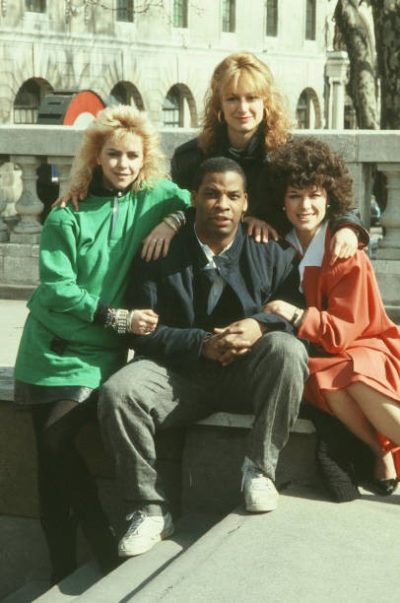
 The latest take on one of Britain’s greatest historical heroines has come in for a fair bit of critical flak. But I really did not think it was all that bad. Sure, it plays fast and loose with historical accuracy (Christianity wasn’t a thing in Britain at the time). However, we’re dealing with someone about whom there is very little reliable record. Why not throw in chunks of the Arthurian mythos, if it might make for a more interesting end product? The usual basics are there. Queen of the Iceni Boudica (Kurylenko) loses her husband (Standen), and subsequently falls foul of the occupying Roman Empire. She raises an army, leads a rebellion, kicks Roman butt for a while, but eventually goes down, fighting. That’s the Cliff Notes version.
The latest take on one of Britain’s greatest historical heroines has come in for a fair bit of critical flak. But I really did not think it was all that bad. Sure, it plays fast and loose with historical accuracy (Christianity wasn’t a thing in Britain at the time). However, we’re dealing with someone about whom there is very little reliable record. Why not throw in chunks of the Arthurian mythos, if it might make for a more interesting end product? The usual basics are there. Queen of the Iceni Boudica (Kurylenko) loses her husband (Standen), and subsequently falls foul of the occupying Roman Empire. She raises an army, leads a rebellion, kicks Roman butt for a while, but eventually goes down, fighting. That’s the Cliff Notes version.  Zombies and jail aren’t quite as new an idea as you might think. The Walking Dead had a major arc which took place at a prison, the facility’s fences now more useful for keeping things out than in. And back in 2005, The Asylum released the (surprisingly decent)
Zombies and jail aren’t quite as new an idea as you might think. The Walking Dead had a major arc which took place at a prison, the facility’s fences now more useful for keeping things out than in. And back in 2005, The Asylum released the (surprisingly decent) 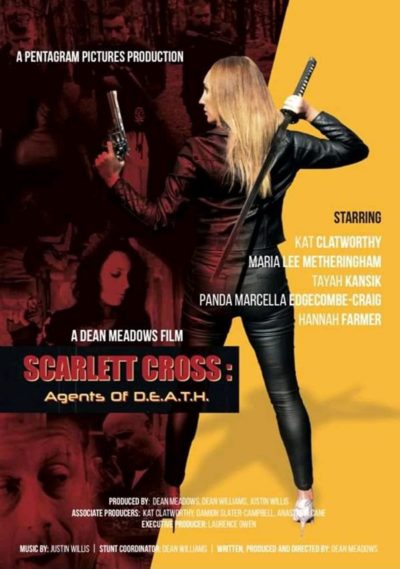 To be honest, I enjoyed this a good bit more than the rating above would indicate – probably another star or so. But I have a particular tolerance for cinema with rough edges, which I know not everyone will share. This is such an entity. I can’t really recommend it, since most people won’t be able to get past the micro-budget anesthetics, which the film rarely bothers even to try and hide. But I could appreciate the obvious passion that went into this. Put it this way, if I had twenty quid with which to make a movie, it could end up looking something like this. Probably not with such a kick-ass poster though.
To be honest, I enjoyed this a good bit more than the rating above would indicate – probably another star or so. But I have a particular tolerance for cinema with rough edges, which I know not everyone will share. This is such an entity. I can’t really recommend it, since most people won’t be able to get past the micro-budget anesthetics, which the film rarely bothers even to try and hide. But I could appreciate the obvious passion that went into this. Put it this way, if I had twenty quid with which to make a movie, it could end up looking something like this. Probably not with such a kick-ass poster though. After a year which has been filled with disappointments and films which have failed to generate much reaction beyond a mild “Meh,” it’s nice to see one which certainly surpasses expectations. Indeed, with about two months left to go in 2023, this would certainly be a finalist for GWG Film of the Year, were there to be such an award, and potentially could walk away with that hypothetical trophy. It’s the kind of movie which, even when you know exactly what’s about to happen, still delivers in a way that can generate an undeniable reaction. Considering my expectations going in were not much more than the made-for-TV level – this being a BET channel exclusive – it surpassed those greatly.
After a year which has been filled with disappointments and films which have failed to generate much reaction beyond a mild “Meh,” it’s nice to see one which certainly surpasses expectations. Indeed, with about two months left to go in 2023, this would certainly be a finalist for GWG Film of the Year, were there to be such an award, and potentially could walk away with that hypothetical trophy. It’s the kind of movie which, even when you know exactly what’s about to happen, still delivers in a way that can generate an undeniable reaction. Considering my expectations going in were not much more than the made-for-TV level – this being a BET channel exclusive – it surpassed those greatly. The heroine is
The heroine is  While technically solid, and occasionally looking quite good, this may be the laziest scripting I have seen in a movie for a long time. I feel I may have lost actual IQ points through the process of watching it, such is the degree of stupidity which this provides. The heroine is Mina (Black-D’Elia), a college student whose life is upended when she and her little sister narrowly escape a home invasion by Arab terrorists, in which both her parents are killed. She’s rescued by intelligence agent Olivia (Leonard), who tells her she’s the only heir of an Afghani warlord, Khalid (Arditti). Her mother betrayed him, and had to change her identity: he finally caught up with the family, and wants his daughter back.
While technically solid, and occasionally looking quite good, this may be the laziest scripting I have seen in a movie for a long time. I feel I may have lost actual IQ points through the process of watching it, such is the degree of stupidity which this provides. The heroine is Mina (Black-D’Elia), a college student whose life is upended when she and her little sister narrowly escape a home invasion by Arab terrorists, in which both her parents are killed. She’s rescued by intelligence agent Olivia (Leonard), who tells her she’s the only heir of an Afghani warlord, Khalid (Arditti). Her mother betrayed him, and had to change her identity: he finally caught up with the family, and wants his daughter back.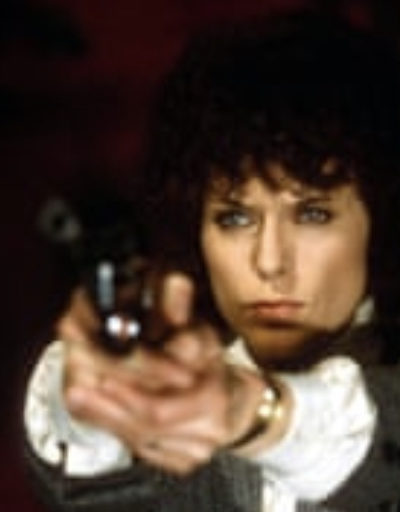 To be honest, it’s more character- than action-driven overall, yet that’s its strength, since it does a great job of creating people who feel “real”. Nobody here is perfect: everyone has flaws, and struggles to cope with life’s ups and downs. Maggie is the focus, having to operate in an era when casual disregard for a woman’s talents was the norm. Not least by her Scottish colleague, Bob Croft (Gwaspari), though he eventually came to appreciate her many talents, such as Forbes’s fierce devotion to justice. Fortunately, her boss, Detective Chief Inspector Bill Russell (Marlowe) always had her back, even if his approach means cutting her no slack either. But every episode seemed to have one or more great performance, taking advantage of the vast pool of top-tier British character actors.
To be honest, it’s more character- than action-driven overall, yet that’s its strength, since it does a great job of creating people who feel “real”. Nobody here is perfect: everyone has flaws, and struggles to cope with life’s ups and downs. Maggie is the focus, having to operate in an era when casual disregard for a woman’s talents was the norm. Not least by her Scottish colleague, Bob Croft (Gwaspari), though he eventually came to appreciate her many talents, such as Forbes’s fierce devotion to justice. Fortunately, her boss, Detective Chief Inspector Bill Russell (Marlowe) always had her back, even if his approach means cutting her no slack either. But every episode seemed to have one or more great performance, taking advantage of the vast pool of top-tier British character actors.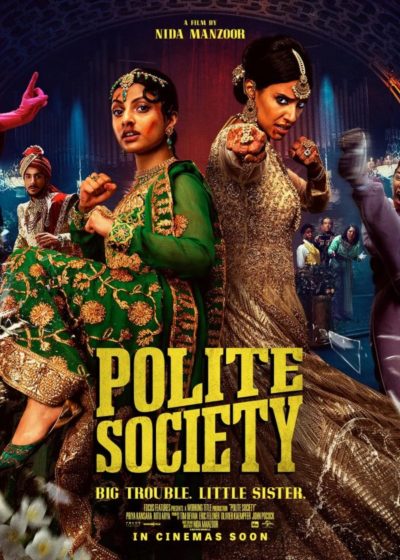 Sitting somewhere between
Sitting somewhere between 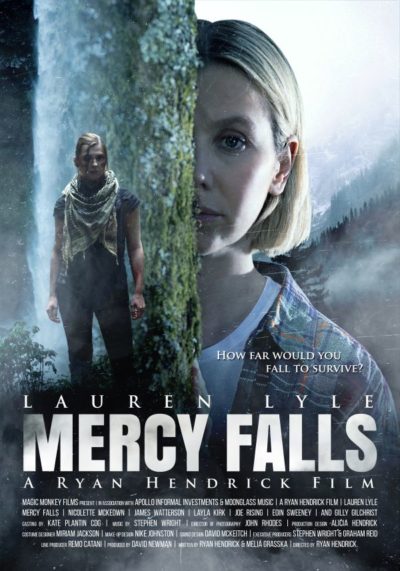 Even though I haven’t lived there since the eighties, I remain a sucker for a Scottish film. This delivers, with no shortage of rugged mountain landscapes, beautiful lochs, a ceilidh band and trees. So. Many. Trees. The foliage is understandable, because most of it takes places in the woods, where Rhona (Lyle) and her friends are looking for a cabin, deep in the wilds, which belonged to her late father. To help find it, they enlist the help of local Carla (McKeown), whom they meet down the pub when they have a pre-trip planning get-together. She initially seems fun to be with. But once they’re away from civilization, a shocking incident proves she… has issues, shall we say. And might not be the only one in the party.
Even though I haven’t lived there since the eighties, I remain a sucker for a Scottish film. This delivers, with no shortage of rugged mountain landscapes, beautiful lochs, a ceilidh band and trees. So. Many. Trees. The foliage is understandable, because most of it takes places in the woods, where Rhona (Lyle) and her friends are looking for a cabin, deep in the wilds, which belonged to her late father. To help find it, they enlist the help of local Carla (McKeown), whom they meet down the pub when they have a pre-trip planning get-together. She initially seems fun to be with. But once they’re away from civilization, a shocking incident proves she… has issues, shall we say. And might not be the only one in the party.